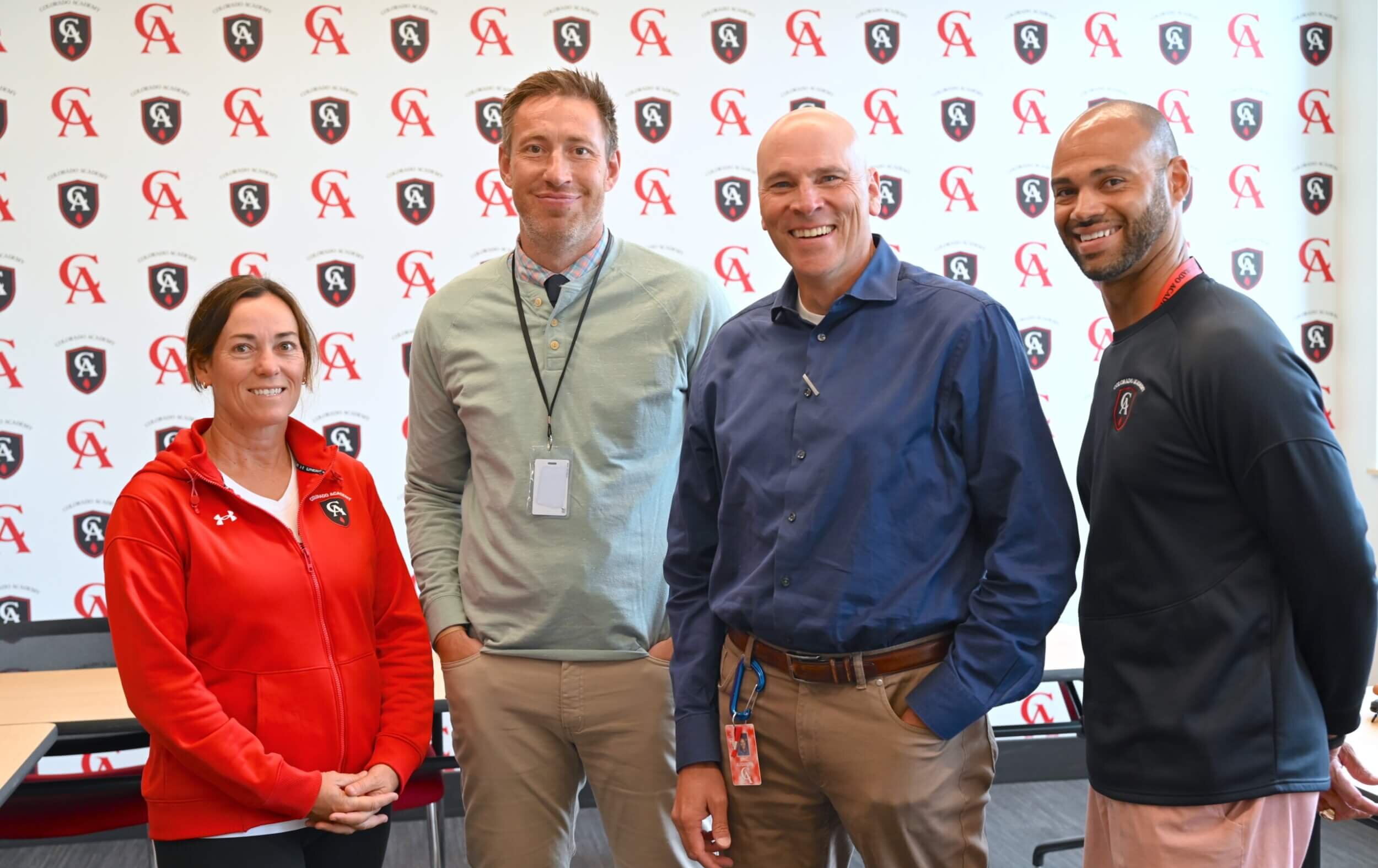As a new year of Mustang sports kicks off with exciting fall contests, there’s no question many Colorado Academy fans are eagerly looking forward to another season of continued success on the field. Last fall, Varsity Field Hockey and Varsity Boys Soccer added 2022 State Championships to their already impressive collection of titles, and Ultimate Frisbee claimed its second statewide Spirit Award, which goes to the team that best embodies the ethos of the game. The 2022-2023 school year saw other CA teams make their mark, with Varsity Girls Lacrosse nabbing its eighth straight State Championship, Varsity Girls Tennis winning at No. 1 Singles for a second time, and sports such as Climbing, Varsity Boys and Girls Basketball, Girls Swimming and Diving, and Ice Hockey all earning well-deserved recognition.
But talk to some of the people who are most closely associated with this winning record, and you won’t hear all that much about the next trophy they’re after. Instead, as Director of Athletics Jon Hill explains it, “In the CA Athletics Department, above everything else, we judge each season on the experiences our kids are having.”
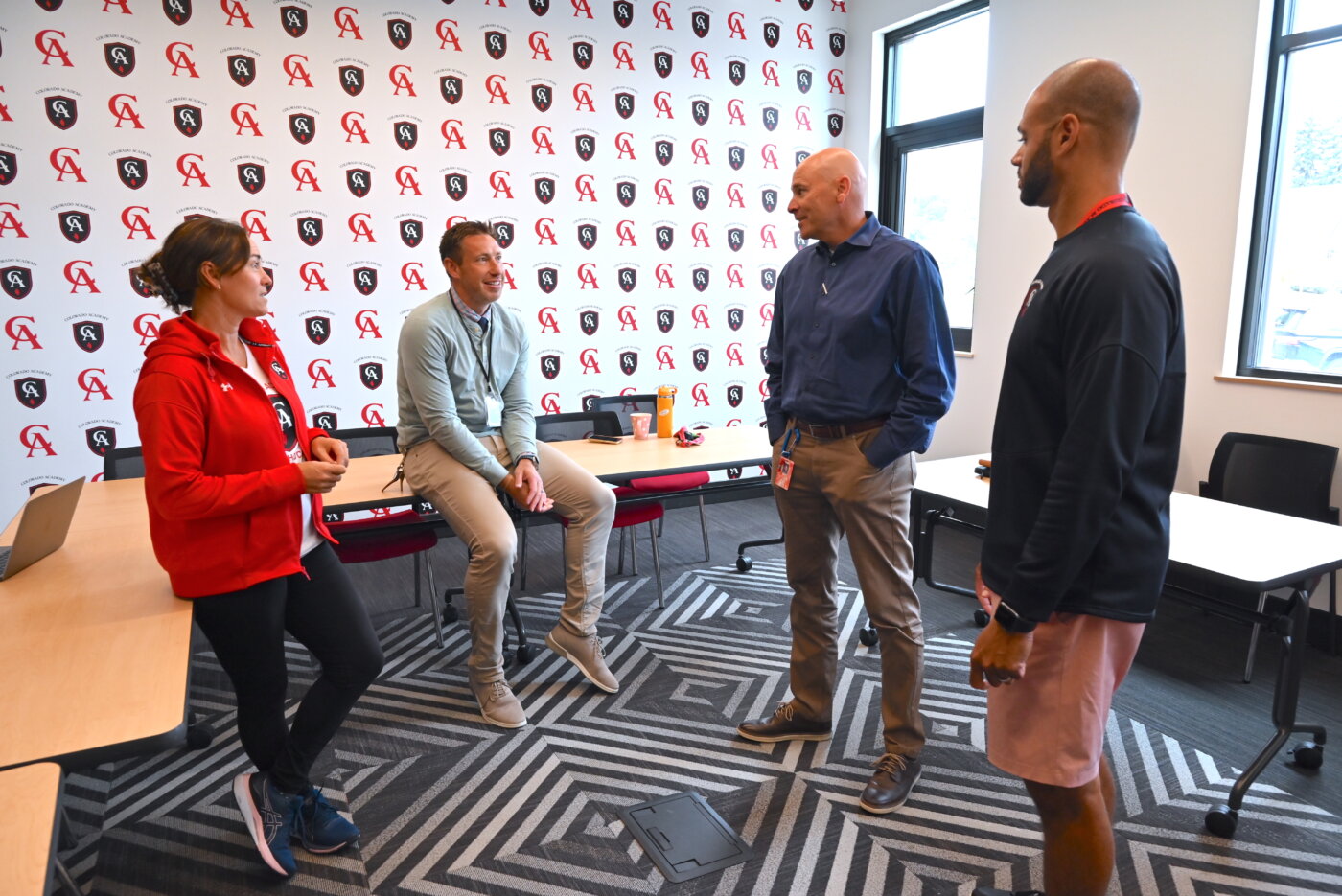
Veronica Scott, CA’s highly-regarded Field Hockey Head Coach, is circumspect when reflecting on the armful of championships her squads have earned in her decade at CA. The growth of her players—both as athletes and as people—is where she counts the biggest wins. “How can we help each individual athlete find success on the field, and what does that success look like?” Scott asks. “Out on Slater, our core values align with the school’s: courage and kindness, competition, respect, and playing for something larger than ourselves.”
Boys Soccer Head Coach, Twelfth Grade Dean, and Upper School Academic Coach Gabe Bernstein adds, “In my program, we’re focused on building habits, building behaviors, and building skills. A trophy might be an embedded, far-off goal, but none of what we do is about the wins and losses.”
And Eric Augustin, Ultimate Frisbee Head Coach and Middle School English and social studies teacher, argues, “There’s 16 weeks of practice in our season, and only 10 games. What’s more important—the 16 weeks that you commit to being a member of this family, the growth that you and the team make in that stretch of time, or the 10 instances of whether you win or lose? I want my players to remember the community and the vibe they helped create—nothing else.”
Augustin, Bernstein, Scott, and Hill have much more to say about how this approach adds up to success year after year—or, as Scott puts it, how at CA, “The wins just come naturally, because the culture is so strong.”
Leadership
Hill points to sports program leaders as core to the athletics experience at CA. Augustin, for example, has brought campus-wide buzz and accolades for Ultimate, once upon a time seen as an “outsider” sport but now celebrated as one that draws enough players for two teams at the Upper School level and a brand-new option for Middle Schoolers. “When we see that kind of growth and excitement in a program,” says Hill, “we know that kids want to play this sport. That’s a testament to the way Eric rallies players together around the game.”
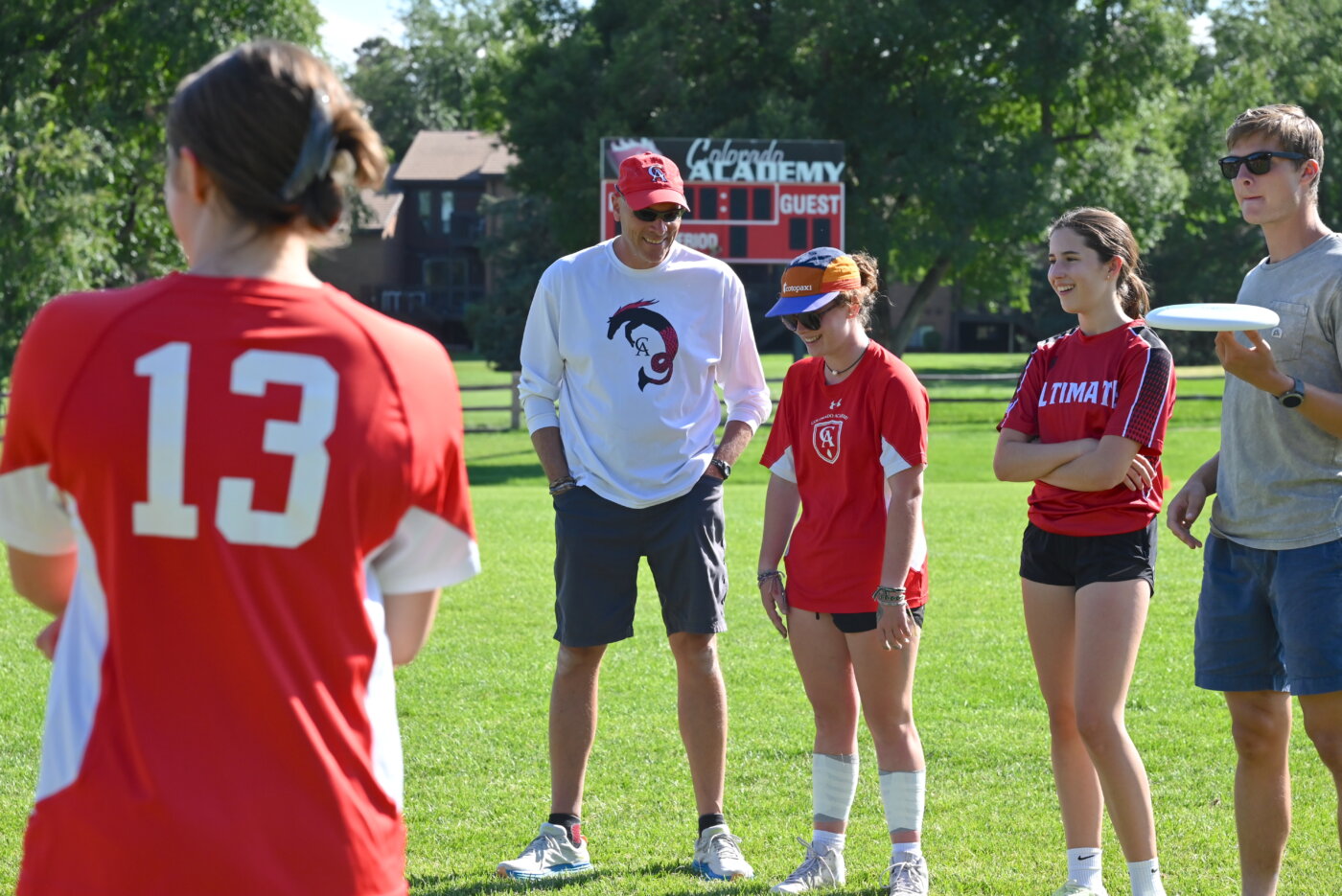
Bernstein, Hill explains, has brought a similar strength to Boys Soccer, where, year in and year out for over a decade, he’s helped instill a shared set of values among players and coaches across three Upper School and two Middle School squads. Those strong threads tying the program together include positioning Seniors as leaders within the program, embracing challenge as a path to growth, and emphasizing resilience and accountability. “Gabe demonstrates to the entire school that no matter what level you’re playing at, or what your role is on a given team, we all have the same goal.”
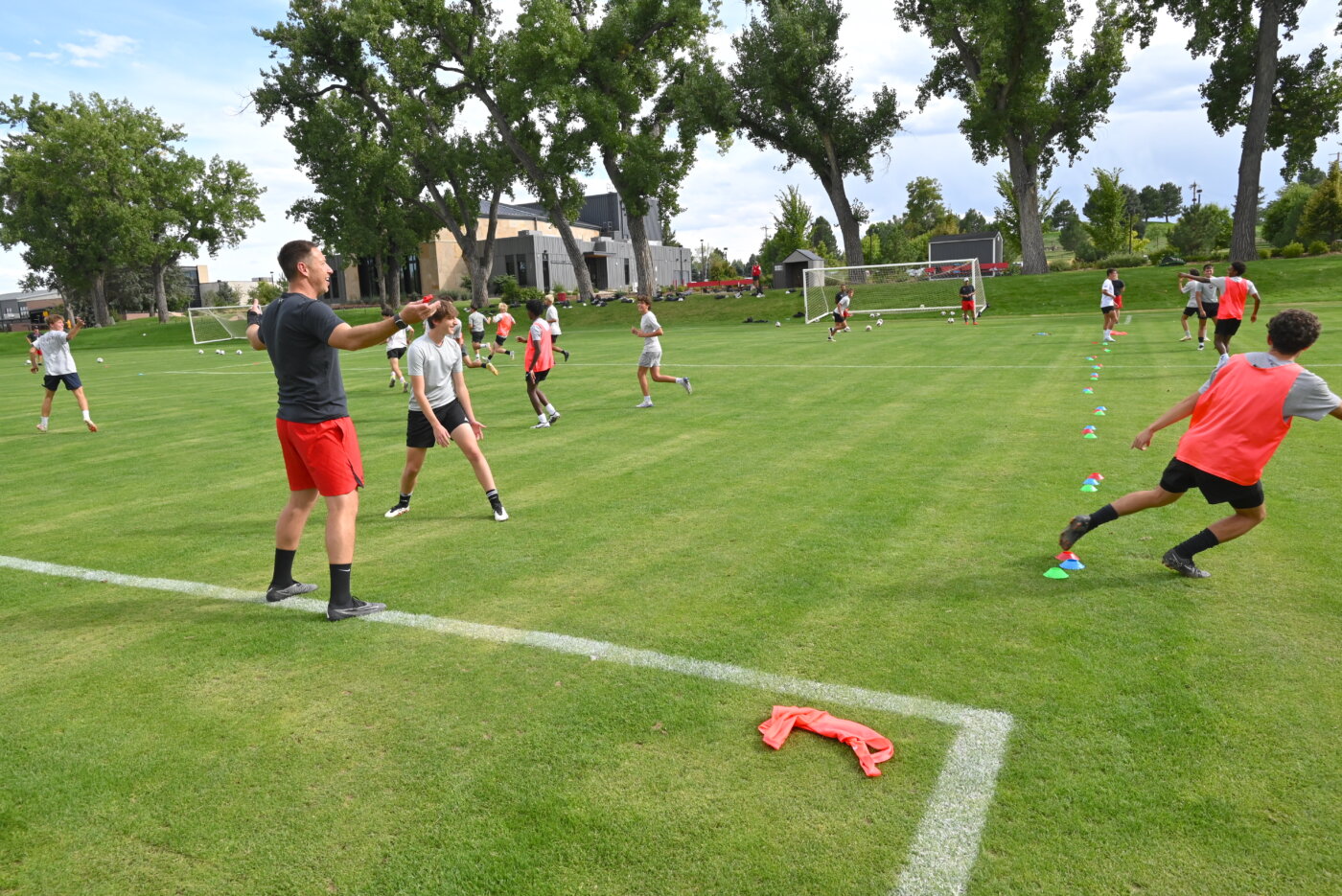
Hill praises Scott for her passionate dedication to the growth of a sport that’s still relatively small in our region. With a roster that expands to three or four teams in the Upper School every year, and two more in the Middle School, the CA Field Hockey program offers athletes the chance to thrive as part of a growing CA legacy that’s setting an example for what success at the high school level looks like. “The connections Veronica has built within her program—between players, coaches, and across the teams at different levels—ensure everyone feels a part of something,” Hill says. “Her players will outrun almost anyone on the field because they’re playing for each other.”
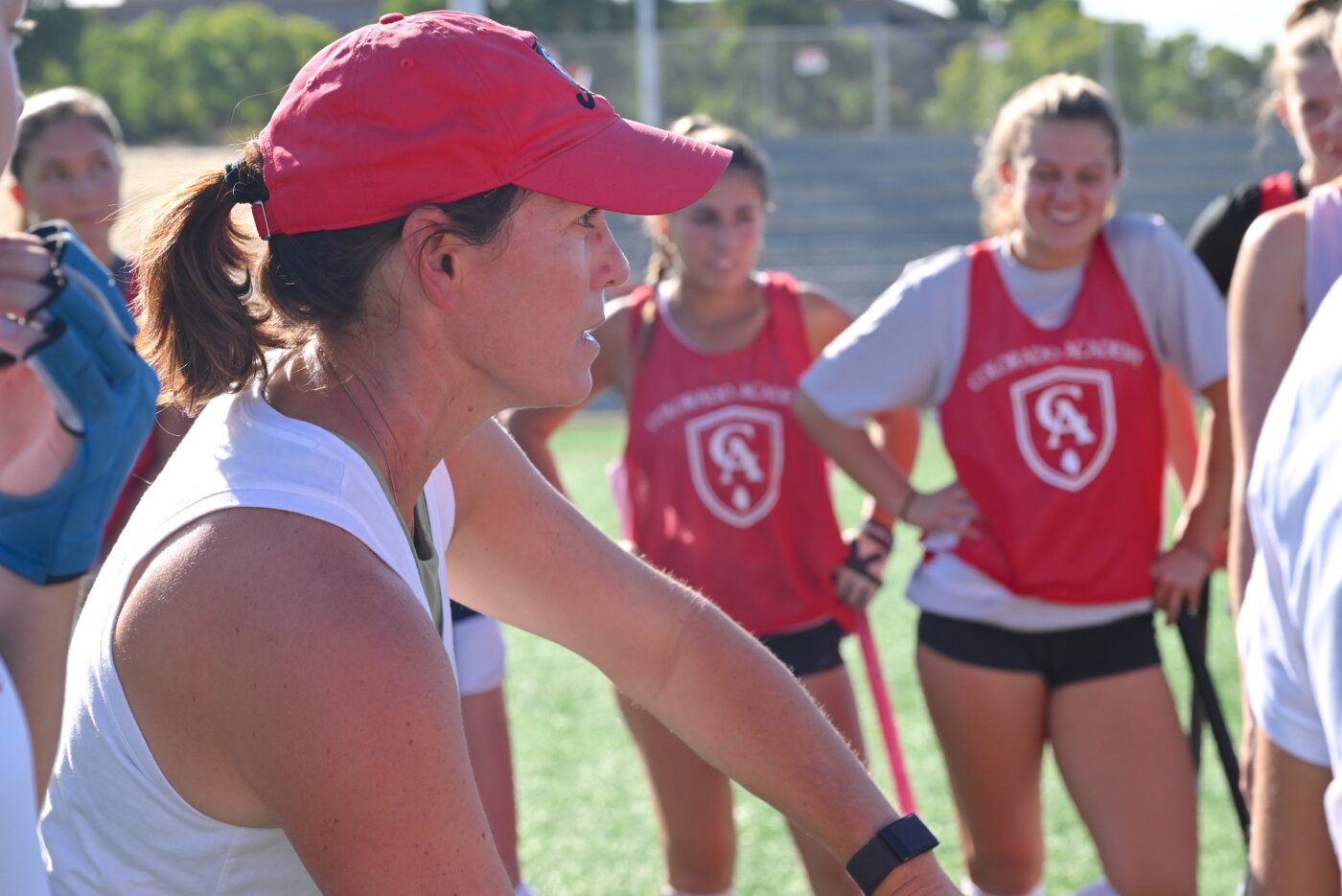
Process
If leadership sets each season in motion, then it’s insistence on process and player development that gives it momentum.
For Augustin, that can very literally mean learning to throw a Frisbee for the first time. “That’s okay in Ultimate,” he says. “On that very first day of practice we put everyone out in the field and say, ‘Take a mental snapshot of this.’ Unlike with soccer or lacrosse, which lots of kids pick up early on, half of my Ultimate players might not know what they’re doing at all. I tell them, ‘When I first started, I couldn’t throw either. See this Senior over here? He also wasn’t very good. But by the end of this season, you will be.’”
Bernstein, too, encourages long-term thinking. “Each practice, put yourself in a position to play on the last day of the season,” he tells his players. That vision begins with allowing each year’s lineup to find its own identity, and urging players to notice where they fit within it, Bernstein says. “The younger students look to the Seniors and Juniors for a sense of how they can contribute, how they can define their roles, and the Varsity starters establish the culture of hard work, growth, and team that brings it all together.” Giving players who are just starting in the program a picture of how they might become a contributor at the Varsity level is essential to the continuity Bernstein strives to nurture from year to year.
Scott says that empowering her players to set their own goals establishes a shared vision that runs throughout each season. “We ask them to have a bit of self-awareness about how they define success for themselves and the program,” she explains. “And every year, a few keywords rise to the top: accountability, putting everything we have out on the field, challenging ourselves to make mistakes and learn from them, speaking up when something’s not right, being there for each other—the Seniors supporting the Ninth Graders when they see them around campus, for example.”
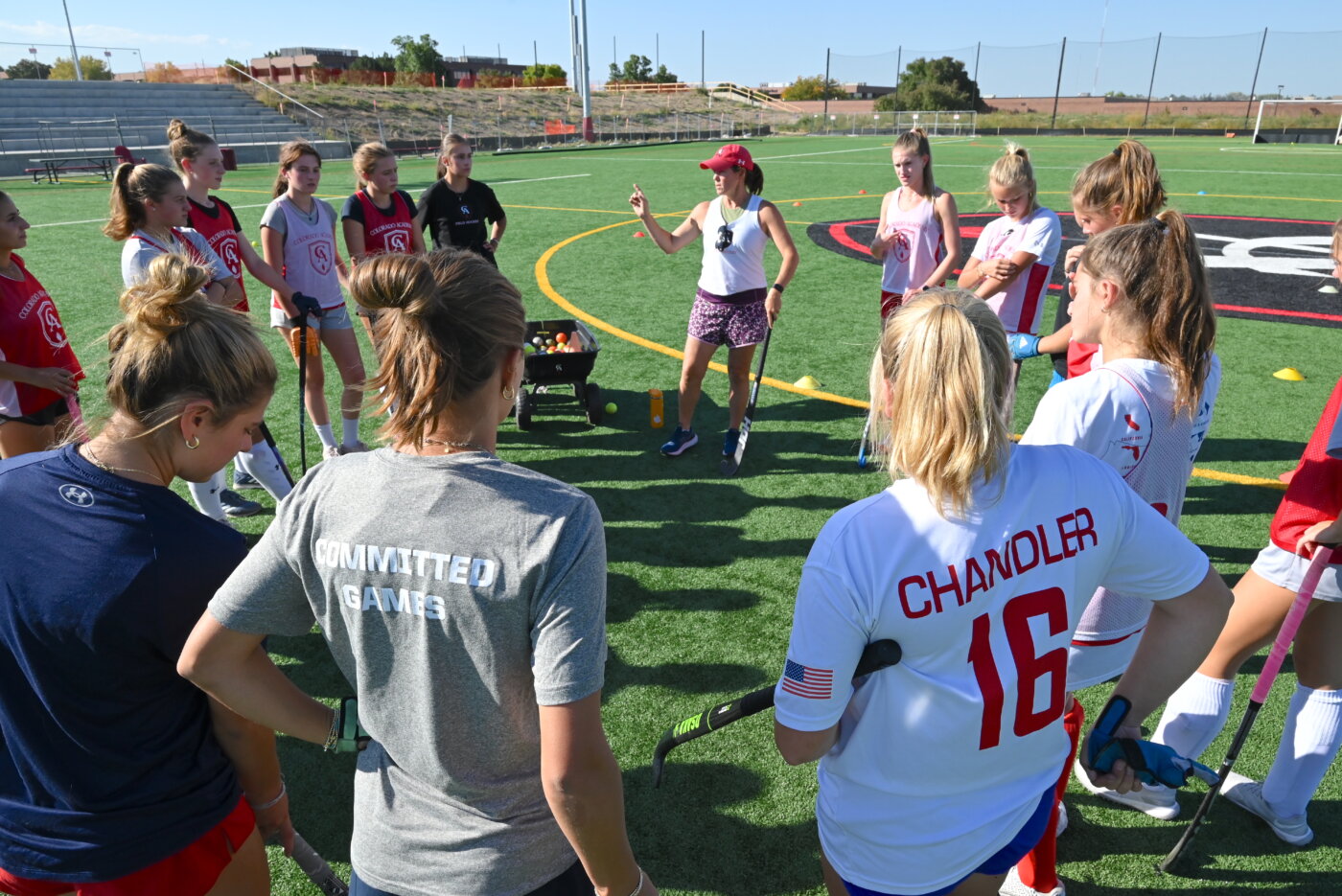
Scott and her players turn Slater Turf Field into a “safe space,” where students can drop their school bags and concerns at the gate and find joy in giving their all to the game and their teammates. “No one plays well when they’re unhappy; how much more fun is it to play when we know we’ve worked hard in practice and we’ve achieved a skill, and now we put that skill into practice through our gameplay. That’s what makes us happiest.”
Hill notes that the focus on culture, growth, and vision pushes the all-important life lessons of sport to the forefront of CA’s programs. “There are so many skills our players develop: how to communicate, how to interact with others, how to be responsible, how to manage your time, even how to remember your water bottle, your shoes, and your shorts. These are things that stay with students long after the end of the game.”
Legacy
Still, understanding each season as part of a bigger, multi-year CA legacy of success inevitably plays a part for both coaches and players. For Bernstein, that means looking at a new team from the perspective of where they can improve—their “success ceiling,” as he describes it.
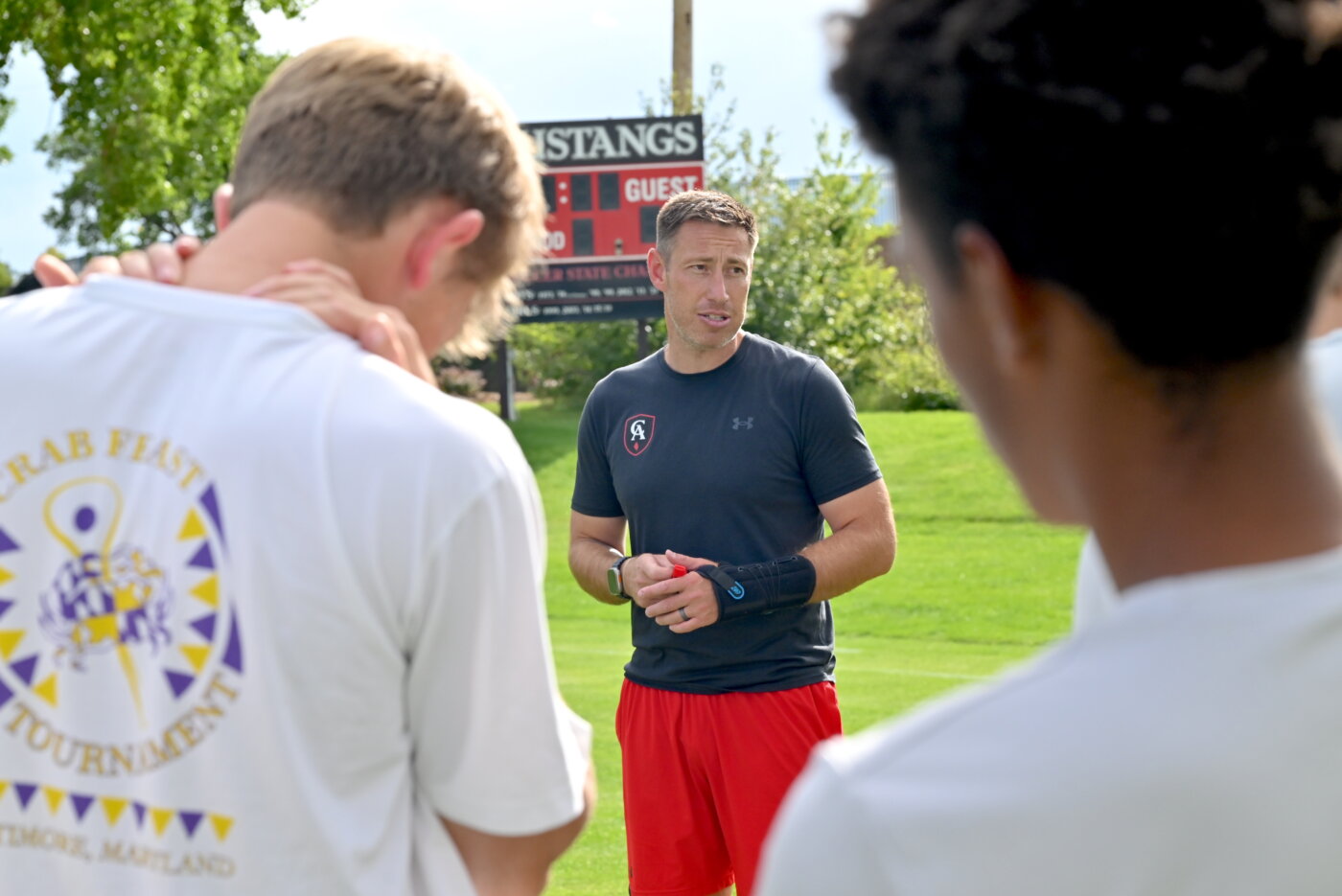
“It’s not about whether we have the same kind of standout player we had last year,” he elaborates. “It’s more about mental toughness: How resilient is this particular group of players? When I think about the progression from one year to the next, I think about how these students are going to be able to navigate the obstacles that they’re inevitably going to face as a family and as a team and as a school. When things go really wrong out on the field, will we have the ability to weather that turmoil?”
Scott instituted a tradition a few years ago that’s intentionally designed to allow players to pass along their enthusiasm from year to year. Graduating Senior players leave a note along with their jersey at season’s end so that the next player who wears their number will know who it belonged to last and what it meant to them to play for CA. The notes typically emphasize the values Scott has worked so hard to instill throughout her time at CA.
By way of example, she mentions one State Championship loss a few years ago. “After the game, the girls came to me crying. But I just asked them, ‘Did we put everything out there?’ It didn’t take long for them to realize that, yes, they did—they were true to themselves and to each other. They ran over and thanked the fans, congratulated their opponents, and couldn’t have been happier accepting that second-place trophy.”
Augustin notes that Ultimate Frisbee is different from other Upper School sports: Every team in the state competes in the final tournament, regardless of their season record. So rather than the win-loss stats of past years, the team focuses on “winning every practice.” “That state tournament is our showtime,” Augustin says, “and we’re going to need everybody’s contribution over those six games we’ll play in two days. It’s a different kind of stress; it’s also a luxury.”
Hard conversations
Of course, CA coaches realize that competition doesn’t always end in celebration; there are always moments when teams and individual players must deal with disappointment and frustration. How they overcome those inevitabilities is just as important as their game-winning skills and attitudes.
Augustin offers the example of a player who feels their performance on a given day let down the team. “The good news about building a really strong culture is, you’ve got a really strong culture. But the bad news is that when an athlete feels like they’re failing to live up to that culture, they can go down a bit of a rabbit hole and blame themselves. It may be there are other things they’re trying to manage in life, too, but whatever the case, it’s our job as a team to pull them back out of that hole.”
Bernstein acknowledges that some of the hardest moments he’s faced as a coach have come when a player’s desires—to earn a key role or join a particular squad, for example—don’t align with the overarching needs of the program as a whole. “We’ve all been in that position where we’ve wanted something so badly and it’s just not going to happen. Somehow, we need to communicate the message that as coaches, we’re thinking about not only individual development, but also the best interests of the team, the program, and the school.”
“Players can be heartbroken,” adds Scott, “and that’s tough for us, as well. But as leaders, we know that in the long run, we’re doing our kids a disservice by granting them that short-term wish, only to sacrifice the bigger gains they could be making as a player and as a person. We’re always asking ourselves, what’s going to help them the most, what’s best for the players around them, and what most sustains the culture we’re trying to create?”
Don’t forget the fun
Fortunately, as Scott underscores, the good moments usually far outweigh the difficult ones. CA coaches are constantly on the lookout for the positives. “If we’re not having fun, then why are we here?” Scott asks.
In his roles in the Upper School, Bernstein interacts with student-athletes every day, and, he says, “Sometimes I’m almost jealous when I hear the way Ultimate players talk about their sport—it’s light hearted and happy. That’s something we all strive for in our programs.”
Augustin goes on, “Just like the other coaches, I know my players love being out there on the field. If they’re late one day, I’m not going to come down on them—I’m pretty sure they would rather have been at practice than doing whatever made them late. So I tend to give them a lot of grace. I don’t want to be the one adding stress to their day.”
Coaches want to have fun, too, adds Scott. “Sometimes, we act like clowns out there,” she says. The smiles and laughs come for all different reasons. There’s the joy of accomplishing something and connecting as a team. And there’s the deep satisfaction of seeing student-athletes go through a challenge and come out of it as better players and better human beings.
As Bernstein explains it, “When I first started coaching at CA, and I saw a group struggling or failing at something, I found myself wanting to jump in and fix it for them. But as I’ve evolved as a coach, and I think this is true for all of us, I’ve come to understand that those challenges, those struggles—those are the great moments we want them to have. That’s true joy; that’s why we’re all here.”
